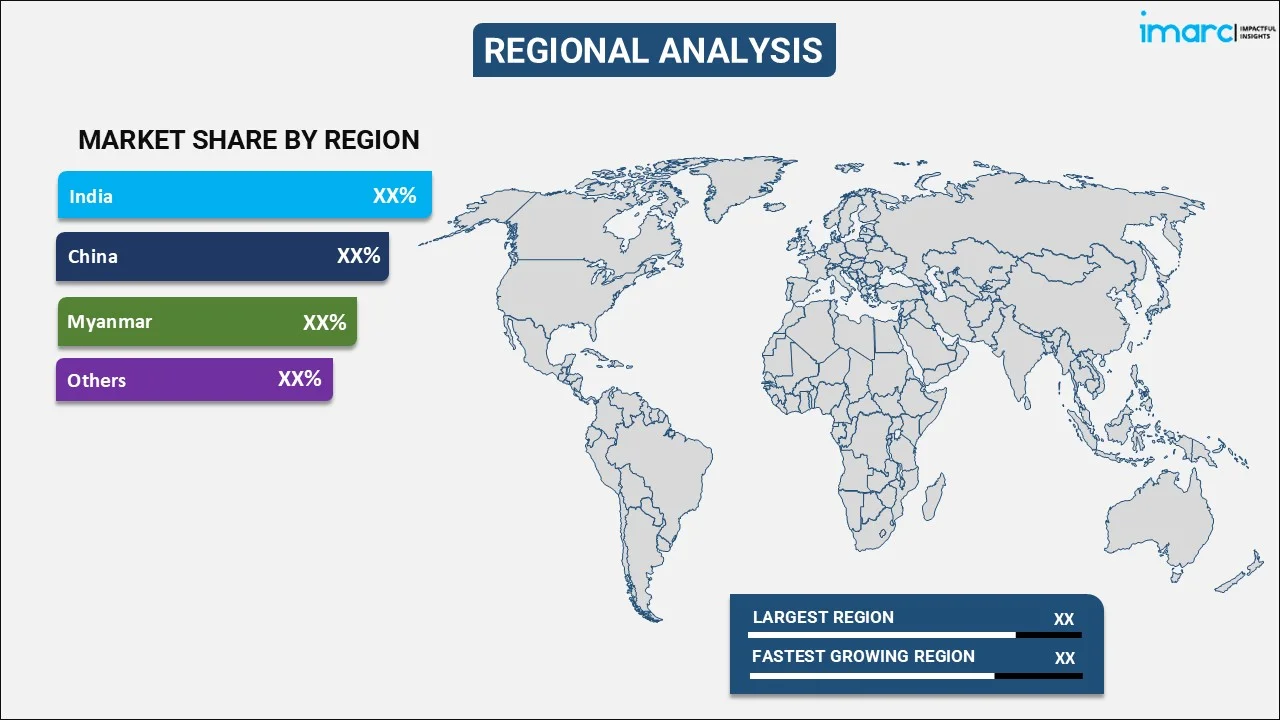
Mung Beans Market: Global Industry Trends, Share, Size, Growth, Opportunity and Forecast 2025-2033
Market Overview:
The global mung beans market size reached USD 4,491.4 Million in 2024. Looking forward, IMARC Group expects the market to reach USD 5,826.1 Million by 2033, exhibiting a growth rate (CAGR) of 2.79% during 2025-2033.
|
Report Attribute
|
Key Statistics
|
|---|---|
|
Base Year
|
2024
|
|
Forecast Years
|
2025-2033
|
|
Historical Years
|
2019-2024
|
|
Market Size in 2024
|
USD 4,491.4 Million |
|
Market Forecast in 2033
|
USD 5,826.1 Million |
| Market Growth Rate 2025-2033 | 2.79% |
Mung beans are green-colored beans belonging to the legume family, which have been cultivated and consumed in several parts of the world since ancient times. They are a rich source of fibers, vitamins, proteins, minerals, antioxidants, and phytoestrogens. Their regular consumption is known to help in preventing and controlling health issues, such as diabetes, osteoporosis, heart diseases, anemia, and cancer. Besides this, they prevent obesity, promote digestion, reduce inflammation, lower blood pressure levels, and minimize the chances of developing chronic diseases. Mung beans are either cooked or sprouted and considered suitable for people of all ages as they are easy to digest. As a result, they are utilized in the preparation of soups, salads, stir-frys and fried snacks.
Mung Beans Market Trends:
At present, there is a rise in the demand for mung beans on account of the growing health consciousness among individuals and the increasing prevalence of lifestyle diseases across the globe. Moreover, the shifting preferences of individuals from animal-based to plant-based proteins due to the rising awareness among individuals about animal health and cruelty against animals is resulting in the growing adoption of veganism and vegetarianism on a global level. Apart from this, these beans are utilized in various dietary supplements and ready-to-eat (RTE) food products. Furthermore, the burgeoning e-commerce sector and the increasing sales of mung beans via online distribution channels are propelling the growth of the market. These channels offer several advantages over offline stores, such as convenience, better price points and flexible payment and return/exchange options. Moreover, there is a rise in the number of campaigns undertaken by numerous authorities highlighting the negative impact of consuming food items prepared inorganically. This is catalyzing the demand for organic mung bean variants and offering lucrative growth opportunities to market players.
Key Market Segmentation:
IMARC Group provides an analysis of the key trends in each sub-segment of the global mung beans market report, along with forecasts at the global and regional level from 2025-2033.
Breakup by Region:

- India
- China
- Myanmar
- Others
India currently enjoys the leading position in the market as mung beans have been cultivated in the country since ancient times. Moreover, they help suffice the protein requirement of the vegetarian population.
Competitive Landscape:
The report provides a comprehensive analysis of the competitive landscape in the global mung beans market with detailed profiles of all major companies, including:
- AGT Food and Ingredients Inc.
- Australian Mungbean Company
- Cono Group
- ETC GROUP
- Olam Agri Holdings Pte Ltd. (Olam Group Limited)
- Royal Nut Company
Key Questions Answered in This Report
The global mung beans market was valued at USD 4,491.4 Million in 2024.
We expect the global mung beans market to exhibit a CAGR of 2.79% during 2025-2033.
The rising demand for mung beans, as they aid in preventing obesity, promoting digestion, reducing inflammation, minimizing blood pressure levels, etc., is primarily driving the global mung beans market.
The sudden outbreak of the COVID-19 pandemic has led to the changing consumer inclination from conventional brick-and-mortar distribution channels towards online retail platforms for the purchase of mung beans.
On a regional level, the market has been classified into India, China, Myanmar, and others, where India currently dominates the global market.
Need more help?
- Speak to our experienced analysts for insights on the current market scenarios.
- Include additional segments and countries to customize the report as per your requirement.
- Gain an unparalleled competitive advantage in your domain by understanding how to utilize the report and positively impacting your operations and revenue.
- For further assistance, please connect with our analysts.
 Request Customization
Request Customization
 Speak to an Analyst
Speak to an Analyst
 Request Brochure
Request Brochure
 Inquire Before Buying
Inquire Before Buying




.webp)




.webp)












